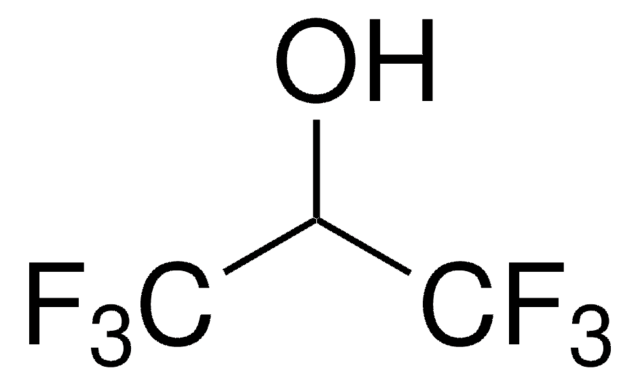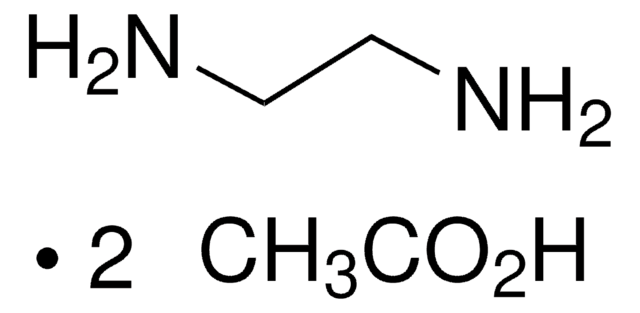90358
Triethylammonium acetate buffer
volatile buffer, ~1.0 M in H2O
Synonym(s):
Triethylammonium acetate buffer, Buffer solution 1 M pH 7.0 (volatile)
About This Item
Recommended Products
Quality Level
Assay
0.95—1.05 mol
form
liquid
shelf life
limited shelf life, expiry date on the label
storage condition
dry at room temperature
concentration
1 M
~1.0 M in H2O
technique(s)
electrophoresis: suitable
color
colorless
refractive index
n20/D 1.357
pH
7.0
6.1
density
1.002 g/mL at 20 °C
suitability
suitable for chromatography
suitable for protein modification
suitable for separation of small nucleic acid fragments
application(s)
detection
diagnostic assay manufacturing
life science and biopharma
sample preparation
storage temp.
2-8°C
InChI
1S/C6H15N.C2H4O2/c1-4-7(5-2)6-3;1-2(3)4/h4-6H2,1-3H3;1H3,(H,3,4)
InChI key
AVBGNFCMKJOFIN-UHFFFAOYSA-N
General description
Application
- as a buffer in proteomics studies
- as a component of the mobile phase to separate nucleotide sugars
- as a buffer for the separation of glycopeptides in proteomics research
Features and Benefits
- Suitable for Biological and Biochemical Research
- Ready available solution reduce the need for preparation time
Other Notes
Storage Class Code
12 - Non Combustible Liquids
WGK
WGK 3
Flash Point(F)
Not applicable
Flash Point(C)
Not applicable
Personal Protective Equipment
Choose from one of the most recent versions:
Already Own This Product?
Find documentation for the products that you have recently purchased in the Document Library.
Customers Also Viewed
Articles
Chromolith® RP-18e columns optimize Oligo Standard 6 separation with varied flow rates and ion-pairing reagent evaluation.
Our team of scientists has experience in all areas of research including Life Science, Material Science, Chemical Synthesis, Chromatography, Analytical and many others.
Contact Technical Service











